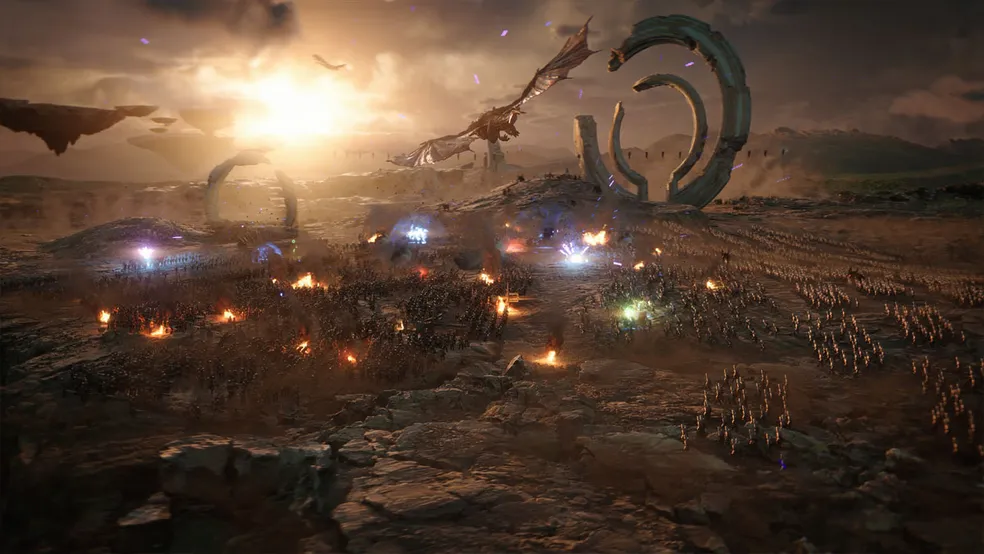Adverts
Unveiling the magic that transcends generations, video games have the unique ability to capture hearts and minds, creating memories that last over time.
This phenomenon is no coincidence. Behind every unforgettable game, there are meticulously planned elements that make it special and memorable.
Adverts
In this space, we invite you to explore the secrets and characteristics that transform a game into a true cultural icon.
Over the years, certain games have managed to earn a prominent place in the history of digital entertainment. What makes these games so memorable?
Adverts
What are the essential ingredients that keep us coming back to them, even decades later? From engaging narratives to moving soundtracks to innovative gameplay mechanics, every detail is a crucial piece in the puzzle of success.
Let’s dive into the creative minds behind these timeless classics and discover how visionary developers managed to combine technology and art to create immersive experiences.
We'll look at iconic examples, uncovering the techniques used to create virtual worlds that not only entertain, but also provoke lasting reflection and emotion.
Get ready for a nostalgic journey through digital universes that have captured the imagination of millions, influencing generations of gamers.
Discover how these games shaped the industry and, more importantly, why they continue to resonate so strongly today. Let's explore together this fascinating journey through the universe of games that marked generations. 🎮✨

The Classic Elements of Unforgettable Games
When we talk about games that have defined generations, the first thing that comes to mind is the harmonious combination of various design elements. From immersive graphics to a captivating narrative, each aspect plays a crucial role in creating a memorable experience. One of the defining factors is the balance between challenge and reward, which keeps players engaged and motivated to progress.
Sound design, for example, is often overlooked, but it is one of the most important components of immersing players in the game world. Iconic soundtracks, such as those from “The Legend of Zelda” or “Final Fantasy,” can evoke deep emotions and help build an emotional connection between the player and the game’s universe.
Another essential point is the construction of rich and detailed worlds. Games like “The Elder Scrolls V: Skyrim” and “The Witcher 3: Wild Hunt” are perfect examples of how a well-designed environment can make the player feel part of something bigger, exploring vast territories full of hidden stories.
Impact of Technology on the Evolution of Games 🎮
Technological developments have played a critical role in transforming gaming over the years. With the advent of new hardware and software, developers have been able to create increasingly sophisticated and immersive experiences. The introduction of 3D graphics, for example, has revolutionized the way games are developed and experienced, allowing for more realistic and dynamic interaction.
Artificial intelligence (AI) has also become a driving force in creating memorable games. AI-controlled enemies that can learn and adapt their strategies provide an unprecedented level of challenge, keeping players constantly engaged. Additionally, AI enables personalized experiences, adjusting difficulty and narrative based on player actions and choices.
With the rise of virtual reality (VR) and augmented reality (AR), we are witnessing a new era of immersive gaming. These technologies promise to transport players into ever more realistic and interactive worlds, where they are not just spectators, but active participants. Games like “Half-Life: Alyx” already demonstrate the incredible potential of these technologies to redefine the gaming experience.
The Role of Narrative in Unforgettable Games
Narrative is a central component that sets memorable games apart from their competitors. It provides context and meaning to the player’s actions, transforming the game from a simple sequence of challenges into a rich, emotional experience.
Well-written stories have the power to resonate with players far beyond the time they spend playing. Games like “The Last of Us” and “Red Dead Redemption 2” are examples of how complex, gripping narratives can draw players into an intense emotional journey.
Additionally, the choice to give players the ability to influence the narrative through their decisions is a powerful element that increases the immersion and personalization of the experience. The concept of multiple endings, as seen in “Mass Effect” or “Detroit: Become Human,” gives the player a sense of agency, increasing emotional engagement with the story.

Psychosocial Aspects of Games
Games also play a significant role in developing psychosocial skills. They can be valuable tools for fostering cooperation, communication, and problem-solving. Multiplayer games, in particular, encourage players to work together to achieve common goals, strengthening social and leadership skills.
Additionally, games that offer complex narratives and expansive worlds can foster empathy and understanding by placing players in roles and situations they may never encounter in real life. This type of emotional engagement can have a lasting positive impact on players’ lives, teaching them valuable lessons about perseverance, sacrifice, and morality.
The Challenges of Games Over the Decades
The evolution of gaming has not been without its challenges. One of the biggest hurdles the industry faces is balancing innovation with accessibility. The quest for more complex and immersive gaming experiences must be balanced with the need to keep games accessible to new players.
Another major challenge is to cope with the growing demand for high-quality graphics and vast game content without compromising performance and user experience. Optimizing games for different platforms and hardware configurations is a complex task that requires technical skill and creativity.
Innovations and Future Trends
Looking ahead, it’s clear that innovation will continue to be a central pillar of game development. The integration of emerging technologies like machine learning and cloud computing promises to further transform the way games are created and played.
The trend toward more inclusive and diverse games is also gaining momentum, with developers seeking to represent a wider range of cultures, identities, and life experiences. This movement not only broadens the reach of games, but also enriches the gameplay experience by bringing new perspectives and stories to the table.
Additionally, the growing popularity of games as a service (GaaS) is changing the way games are monetized and maintained. This approach allows games to be continually updated and expanded, offering players new experiences and content that keep them engaged for the long term.
- Realistic Graphics
- Immersive Storytelling
- Sound Design
- Advanced Artificial Intelligence
- Virtual and Augmented Reality Technologies
- Inclusion and Diversity
- Games as a Service (GaaS)

Conclusion
Completing a journey through the universe of games that have marked generations is like revisiting a collection of precious memories. 🎮 Over the years, games have evolved from simple pastimes to immersive experiences that connect people of all ages. But what is the secret behind these unforgettable games? First and foremost, it is the ability to tell stories that resonate emotionally with players. With engaging narratives and captivating characters, these games create lasting emotional bonds.
Technological innovation has also played a key role. From stunning graphics to intuitive gameplay, developers have continually pushed the boundaries of what’s possible, ensuring that each generation of gamers finds something new and exciting. Another crucial factor is community. Successful games not only offer individual experiences, but also build vibrant communities where players can share strategies, celebrate achievements, and form lasting friendships.
In conclusion, the magic of games that have defined generations lies in the perfect combination of powerful storytelling, technological innovation, and an engaged community. 🌟 By understanding these elements, we can better appreciate the lasting impact these games have on our lives. So the next time you pick up a controller, remember the legacy each game carries and the universe of possibilities it offers.




